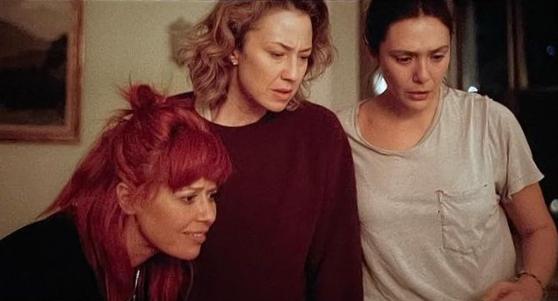
Sciences / Animal Pictures / Talkies Inc. / Case Study
Films / Tango Entertainment, © 2024 Netflix
 |
| Photo
© 2023 High Frequency Entertainment / Arts & Sciences / Animal Pictures / Talkies Inc. / Case Study Films / Tango Entertainment, © 2024 Netflix |
| Awards: | |
| Independent Spirit Awards: Robert Altman Award (director and ensemble) | |
| Chicago Film Critics Association: Best Supporting Actress (Lyonne) | |
| Permalink | Home | 2023 (wp) | 2024 (us) | ABC |